When I was five years old, I felt different to my other family members. I began to feel confused about who the real me was. My body was that of a boy, but my soul was a girl.
My name is Echi and my real name is Sukoco Anggi Saputra. I was born 50 years ago in Lahat Regency, South Sumatra, Indonesia. I was the youngest of eight siblings. My mother died giving birth to me. My father put me in the care of my big brother who had already married and was raising children I was close to one of the daughters as we were almost the same age. I liked to play with her dolls.
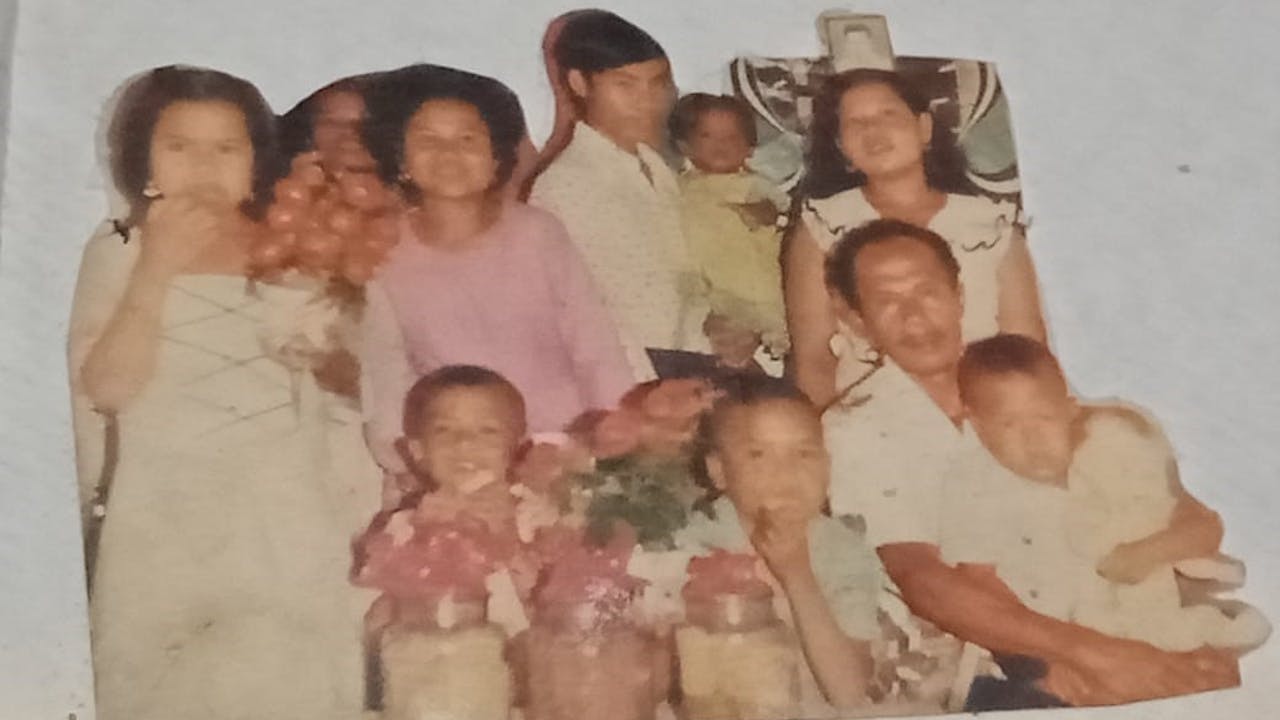
An old family snapshot when I was 9 years old. I am in my father’s arms bottom right, holding a doll.
© EchiWhen I was in junior high, I tried to find a way to be myself. I modified my school uniform to be a little girly. I added accessories to the sleeves and I tightened the uniform shorts. As a result, my school friends asked why I looked like a girl.
They often bullied me and called me ‘bencong’, which is Indonesian slang for unmanly man or lady boy. My closest friend, who sat next to me, always defended me.
At school they bullied me and called me ‘bencong’, which is Indonesian slang for lady boy. I decided to ignore all the bullies and show them who I really was.

Although my schoolteachers were nice, they kept urging me to be macho and manly. I tried, but I could not pretend. I decided to ignore all the bullies and show them who I really was. Gradually, over time, they understood and accepted me.
My family also warned me to not act like a girl. They kept giving me boys’ toys. But I liked playing as a hairdresser. My dream was to own a beauty salon. I liked to braid my friends’ hair and play with make-up.
When I graduated from high school, I was determined to show my family that I could support myself. I worked at a beauty salon and one day I came home from work dressed as a woman. My family did not resent me. They accepted me and said, “you have always been a girl since childhood.”
I wasn’t the only transgender person in our neighbourhood. Our family neighbour wastransgender and there were many other transgender people nearby. My family was thankful that I was not alone.
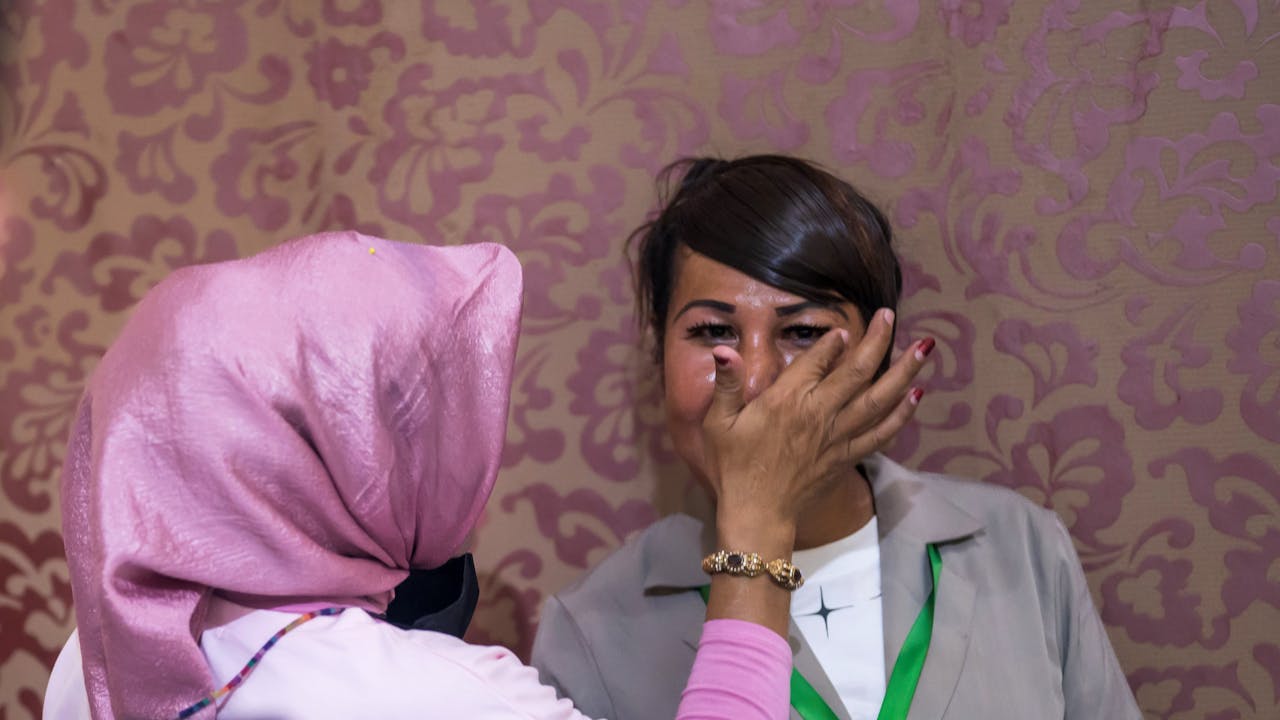
I moved to Jakarta when I was 20. My dream was to own a beauty salon.
© ILO/OIT Feri LatiefWhen I was 20 years old, my transgender neighbour asked me if I wanted to move to the capital city of Jakarta with her. She said I could work at a beauty salon. But I could not find a job. I ended up working on the street for 26 years from 1989 to 2015. I worked for five to six hours from 4 to 10 pm or midnight to 5 am. To make ends meet, I also opened a small beauty salon at my rented house in West Jakarta.
I met my husband early on. He was my client and he worked as a security guard. After ten years together, we got married in my hometown. Both of our families accepted us. Throughout our relationship I continued working on the street and my husband accepted my decision.
In 2007, I became a mother. My husband and I adopted a four-year old child. The child was the eighth child of my landlady, whose house I have rented since 2000. She was always kind to me and we were like family. When the child was born in 2003, I felt close to the baby, as I often babysat for my landlady. When she died in 2007, her wish was for me to adopt her youngest son. Her husband and other family supported her wish and I felt like all my dreams had come true: being a trans woman, a wife and a mother.
It was a hard life working on the street, full of sadness and grief. But this was the profession that I knew. While working, I could accept all the bullies and intimidation, as long as they did not harm me physically. But then, a traumatic incident in 2014 changed my life. One night on the way home after work, a thug dragged me to an empty house where four others were waiting inside. They abused and assaulted me. I couldn’t fight back. There was nothing I could do. I couldn’t even report it to the police. There was no one I could turn to.
The incident made me decide it was time to quit. I felt unsafe and traumatised. My son was growing up and I didn’t want him to see me working on the street. I decided to focus on my small beauty salon.
Since my arrival in Jakarta, I had always maintained a close relationship with the local transgender community. I am an active member of the Transgender Community of West Jakarta, where we hang out together and play sports. But it had never crossed my mind to be an activist.
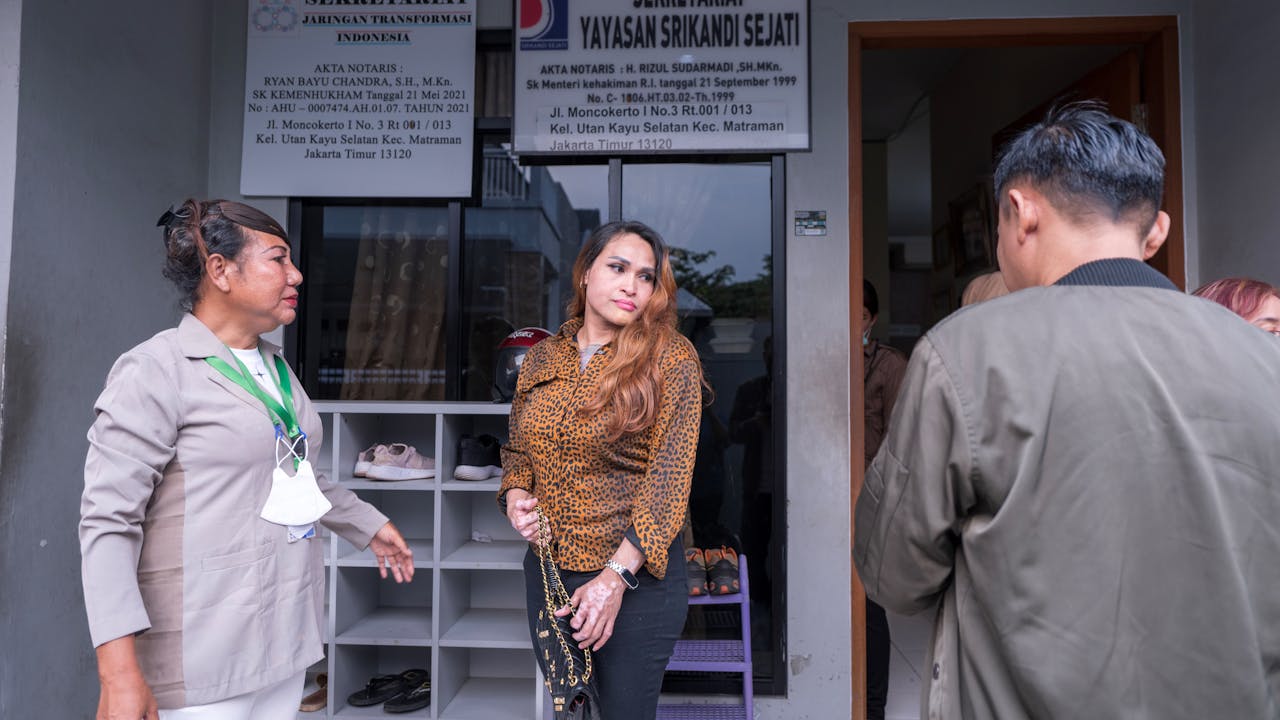
My life changed when I began working at an organization that supports transgender people.
© ILO/OIT Feri LatiefWhen the head of the Transgender Community of West Jakarta heard that I was trying to change my life, she asked me if I wanted to volunteer at an organization called the Srikandi Sejati Foundation, where she was a field officer. I became a volunteer and within six months I was promoted to field officer, which is what I do now. Established in 1998, Srikandi Sejati Foundation is an organization for the empowerment of trans women.
As an activist, I learnt that a transgender person has the same right to be recognized as a citizen as anyone else. I recalled my own reluctance years back when being informed about the importance of obtaining a national identity card. I felt ashamed and was afraid of going to the government office because of the stigma and discrimination that exists against transgender people. I felt I was better off without an ID card.
However, without an ID, I could not open a bank account, receive government social aid or be covered by health and employment insurance. I finally got my ID in 2000 but I had to pay a lot more for it than others.
I felt ashamed and was afraid of going to the government office because of the stigma and discrimination that exists against transgender people. I felt I was better off without an ID card.

I was determined that other transgender people in my community should not go through the same experience.
There was one time when I had to help bury two trans women. I learnt that without any IDs, they couldn’t be buried in the public cemetery. What hit me most was that I didn’t even know their real names and their fathers’ names so they could be engraved on the tombs. I only knew their nicknames. It took a lot of effort to deal with the bureaucracy and we had to pay a lot of money for the burial.
I was heartbroken, and I said to myself, ”Dear Lord, why should the life of a transgender person be like this?” It motivated me even further to ensure that transgender people should have IDs and be recognized. My determination was acknowledged by a joint programme of SuaraKita (Our Voice), an organization, which focuses on equality and justice for the LGBTQ community, and the Indonesia AIDS Coalition (IAC), with support from the International Labour Organization (ILO) in 2022.
I participated in a series of meetings on how to help transgender people get IDs, navigate the bureaucracy, understand and follow procedures and how to deal with the officers of the Population and Civil Service Offices at the Ministry of Home Affairs. I also learned how to change the mindset of transgender people about the importance of having IDs.
Most people in the transgender community think that having an ID is not important. Some say they have survived without an ID for years. Meanwhile others say that they feel ashamed and discriminated against when dealing with government officers, as they often ask “What are you? A man or woman?”
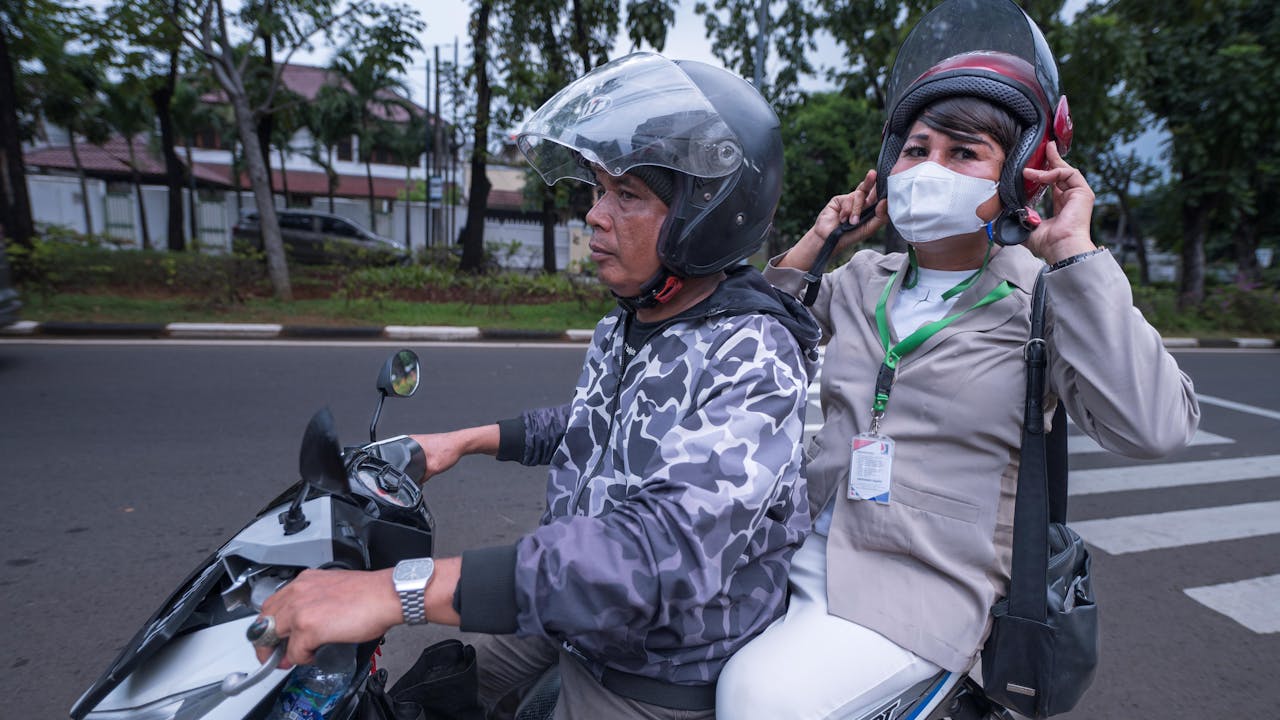
I travel across West and South Jakarta to meet with members of the transgender community to raise awareness about the importance of obtaining national identity cards.
© ILO/OIT Feri LatiefMy first step was to raise awareness about the importance of IDs; to meet with and identify the challenges faced by transgender people. Using a WhatsApp group, I promoted the importance of IDs. I also personally went door to door to visit and discuss the issue. Using a motorcycle taxi, I could visit around five houses a day.
The longest time it took me to persuade someone to change their mindset was a year. I tirelessly reminded her about the benefits and the importance of the ID. I was relieved when she finally agreed to get one!
I was thrilled to see a 68-year-old trans woman getting her ID card for the first time. She was the oldest, while the youngest one was a 17-year-old trans woman who could finally access health and employment insurance.
I also witnessed how the ID helped a fellow trans woman get the surgery she needed for free. Two weeks after she got her ID, she was covered by the health insurance and could undergo the surgery and further treatment.
With their IDs, others could now register for employment insurance and gain benefits such as a pension or support in the event of a work accident or death. They could also open a bank account and apply for a credit loan to buy a motorcycle or house.
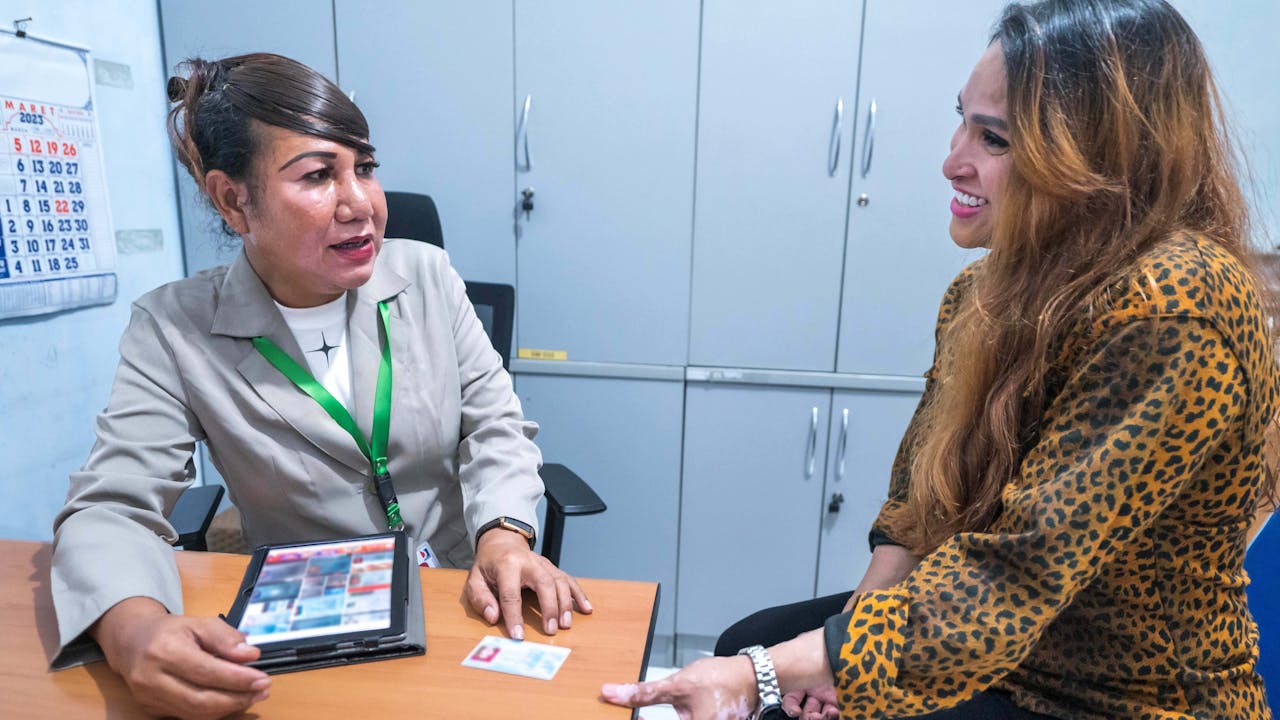
I have helped 75 trans women so far to obtain a national identity card.
© ILO/OIT Feri LatiefIn addition to not having IDs at all, other problems faced by transgender people include changing the ID photo to their current appearance and changing the address from their hometown to Jakarta. Although we have to use our real name and our real gender on the ID, we can use our current appearance for the photo. By understanding their needs, I have been able to assist my fellow trans women to get to the right government unit or department to obtain their IDs.
New staff at the Population and Civil Service Offices can also cause a delay. They are sometimes not aware of the letter from the Ministry of Home Affairs granting access for transgender people to IDs. I have had to discuss with new staff, explaining about the letter. If I get ignored or rejected, I just keep going back!
Ignoring the appointment date is another problem faced by trans women. Some don’t show up to their appointments because they have worked late at night or because they are focussing on their work. I have had sleepless nights, trying to figure out what I could do to convince them.
With their IDs, transgender people in my community could register for employment insurance and gain benefits such as a pension or support in the event of a work accident or death. They could also open a bank account and apply for a credit loan.

I am proud that I have been able to contribute to this programme which has assisted a total of 255 transgender people in the five cities of Jakarta, West Java, Central Java, Yogyakarta and Bali.
And I am grateful and happy that transgender people now have easier access to IDs. Looking at the bright faces of my fellow trans women getting their IDs makes me feel that if I have to die now, I will die in peace.
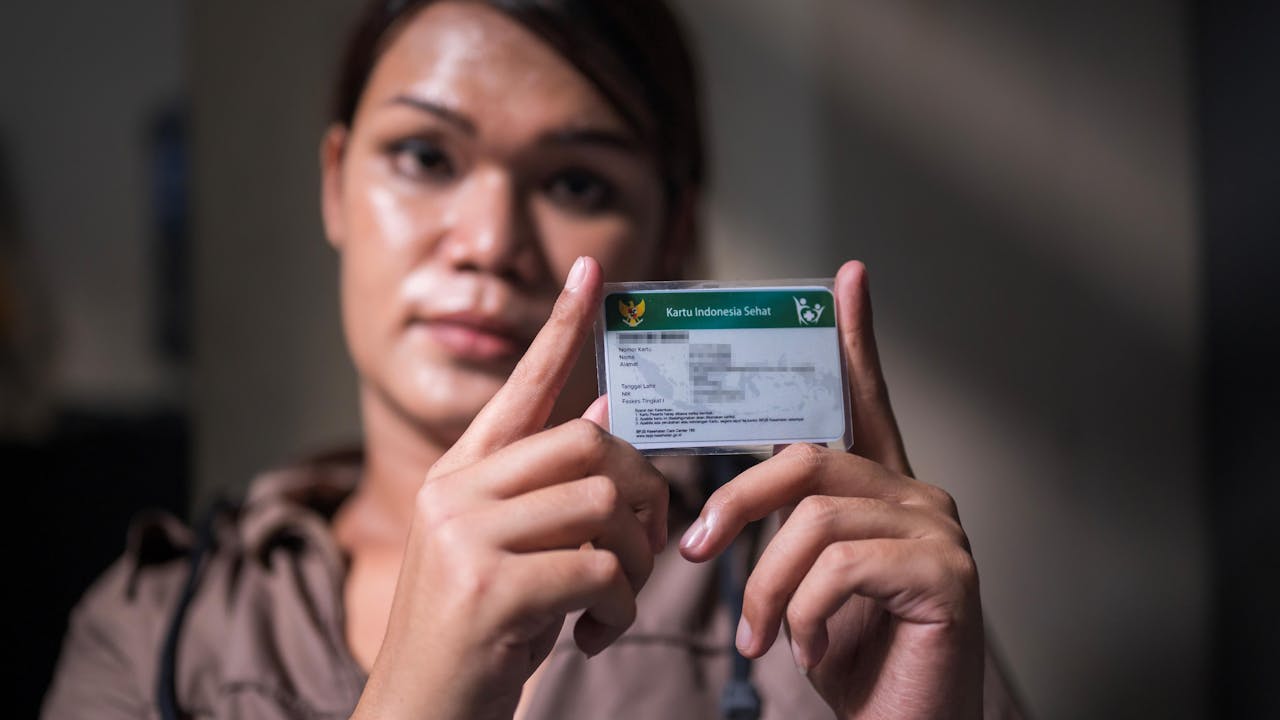
Nesha Sofia, a member of Echi’s transgender community in Jakarta, holds up her national health insurance card.
© ILO/OIT Feri Latief